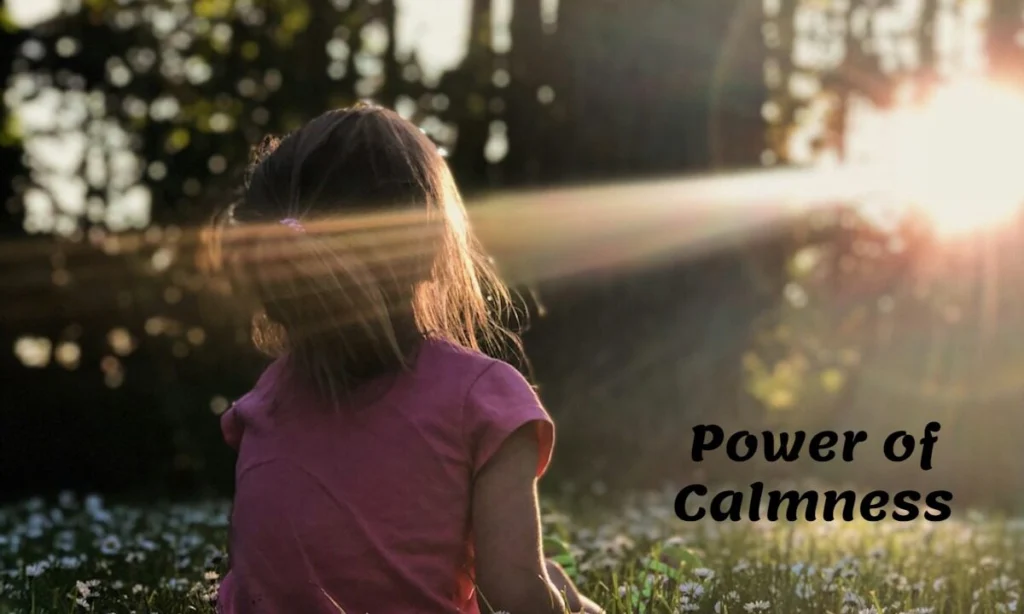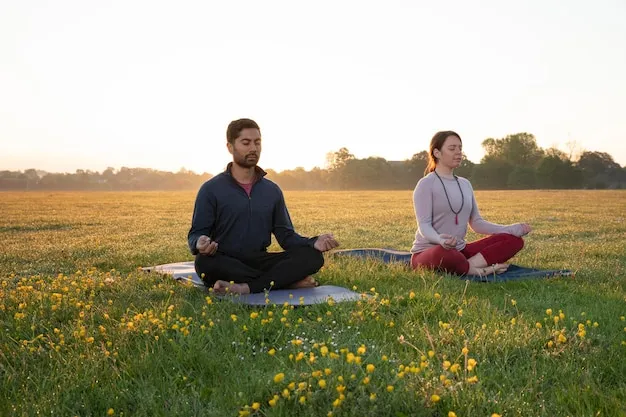Calmness is the ultimate form of self-control. It is like having superhuman abilities. Self-Control is Strength Calmness is Mastery is essential to be able to remain composed and in control when faced with a lot of distractions and problems. These qualities help us deal with life’s ups and downs smoothly.
Self-Control: The Power
Being able to control one’s emotions, thoughts, and actions in order to achieve objectives is a superpower. It is essential for development, supporting goal focus, rational decision-making, and overcoming challenges. It makes it possible to handle stress, resist attraction, and build relationships in order to reach potential and succeed.
Calmness: The Key to Mastery

Calmness is the ability to remain composed under pressure and to have clarity and inner calmness. It supports logical reasoning, skilled judgment, and careful handling of situations. To achieve excellence in all things and to deal with life’s difficulties, one must learn to be calm. It also promotes focus, balance, problem-solving, and well-being.
Techniques for Developing Self-Control
Determining Clearly Limits
Setting up boundaries that are clear helps protect our time, effort, and resources. We can prioritize what really matters and develop a sense of control and purpose by learning to say no to distractions and pointless tasks.
Engaging in Delayed
Choosing long-term benefits over immediate satisfaction means avoiding temptation. We can improve our ability to maintain self-control and build strength in the face of hardship by practicing patience and self-discipline.
Creating Healthy Routines
Self-control is built on a foundation of consistent habits. Cultivating healthy habits strengthens our ability to exercise self-control. Examples of these habits include mindfulness meditation, eating a balanced diet, and regular exercise.
Strategies for Cultivating Calmness
Meditation with mindfulness
Being mindful Inner peace and present-moment awareness are created through meditation. We become more clear-headed and calm when we watch our thoughts and feelings without passing judgment, which helps us get out of our minds.
Exercises for Deep Breathing
Practices of deep breathing encourage calmness and reduce tension. We can create a state of calm and peace through the use of deep breathing exercises, which cause the body’s relaxation response.
Encouraging Visualization
By using the power of imagination, positive visualization may produce feelings of joy and peace. By imagining calm situations or positive outcomes, we can shift our perspective and develop inner peace.
Interpersonal connections

Building sympathy and trust in interpersonal relationships requires maintaining calmness and self-control. You become more aware of and open to the opinions of others when you are calm and have good emotional control skills. This makes it possible to build stronger bonds based on empathy and respect for one another.
Additionally, practicing self-control lessens the possibility of quick reactions, which often lead to miscommunication and emotional distress. Alternatively, by providing thoughtful and compassionate responses, you can ease uncomfortable situations and prevent them from becoming worse.
Why Peace is Important:
Make logical Decisions and Think clearly
When we’re calm, our minds are clear. As a result, we are better able to reason through decisions without allowing our feelings to influence them, which leads to wise choices. This helps us make smart decisions because we can think things through logically without letting our emotions cloud our judgment.
Reduction of Stress
Staying calm helps us deal with stress better. Calmness improves our ability to manage stress. It helps us handle stressful situations more skillfully, which keeps us balanced and keeps stress from getting out of control.
A Sharper Focus and More Completion
Calmness helps us concentrate and be more productive. Our ability to focus and perform better is increased when we are relaxed. Ease improves our concentration and performance. Maintaining calmness allows us to focus on our tasks without being occupied, which improves productivity and results.
Having a positive inner and outer feeling
Maintaining composure improves our emotional health. It develops in us a sense of toughness and calmness, allowing us to accept life’s ups and downs with kindness and optimism.
How To Be in Charge Of Your Life By Being Calm And Self-Controlled
It takes a transformative journey to take charge of your life through self-control and calmness; it involves growing in self-awareness, defining clear goals, engaging in mindfulness practices, and effectively handling stress. Establishing supportive habits, accepting delayed satisfaction, and pausing to reflect are crucial first steps. Seek assistance, take part in self-compassion exercises, and acknowledge your progress is Self-Control is Strength Calmness is Mastery. By incorporating these techniques, you can take back control, make thoughtful decisions, and lead a happy life.
How Calmness And Self-Control Can Transform Society
Calm and self-control have the capacity to transform society for the better. By putting these qualities into practice, people can promote peaceful resolution of conflicts, strengthen interpersonal relationships, and reduce crime and violence in their communities. The ability to make wise decisions and prioritize long-term benefits improves governance and policymaking. People who show calmness and self-control inspire others to adopt similar traits, creating a society that is more compassionate and harmonious.
FAQ”S of Self-Control is Strength Calmness is Mastery
1. How can I improve my daily self-control?
Setting boundaries and priorities is the first step towards developing self-control. Learn to say no to unneeded activities and distractions, and put more focus on long-term objectives than on getting what you want right now. To gradually improve your self-discipline, cultivate good habits like mindfulness meditation and consistent exercise.
2. How can one effectively cultivate a state of calmness?
You can practice a number of methods to develop serenity in your life. These consist of deep breathing techniques, positive visualization, and mindfulness meditation. You can keep your inner peace and peace of mind by engaging in relaxing activities like going for walks in the park or listening to relaxing music.
3. How can maintaining composure and self-control help my relationships?
Calmness and self-control are essential for creating solid interpersonal bonds. You can cultivate empathy, respect, and trust in your relationships by remaining emotionally stable and thoughtful in your responses to other people. In your interactions with others, staying away from impulsive reactions and involved in active listening can also help avoid conflicts and foster harmony.
4. Why is it crucial to put long-term gains ahead of short-term gratification?
To achieve self-control and personal growth, one must put long-term benefits ahead of short-term satisfaction. You can develop resilience, discipline, and determination by stifling temptations and making decisions that are consistent with your long goal. In the long run, this strategy also yields more success and fulfillment.
5. What role can composure and self-control play in changing society?
Self-control and composure improve society. By peacefully resolving disputes, forging stronger bonds with one another, and lowering crime, individuals who possess these attributes can make communities safer and kinder. A more peaceful society results from their influence, which motivates others to have greater compassion.
Conclusion
Gaining composure and self-control not only promotes personal development but also acts as a catalyst for constructive social change. People who exhibit these traits gracefully handle difficulties, building stronger bonds and peaceful communities. Their impact is widespread, encouraging others to adopt these values and make the world a more compassionate place.

